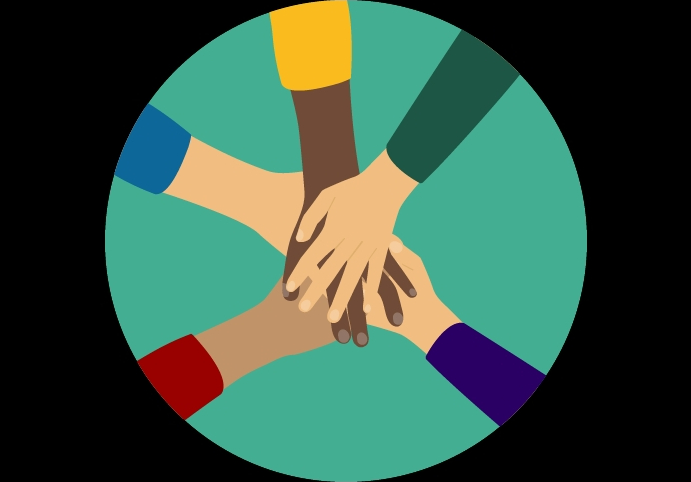For the last five years, the left-wing political community of Birmingham has been involved in a community accountability process that takes collective responsibility against sexual violence. Here an anonymous participant shares their reflections on that process.
This is the second in a series of articles reflecting on the community accountability process. Please note that this article contains candid discussion of sexual violence throughout.
I wanted to write my own personal account of the process because I think I did not do the right thing in this case initially. There are lots of reasons for that, which I will explain, but I also think learning about my initial reaction and how I changed my mind would be beneficial to those who might be experiencing a similar type of situation. This is because I think it is likely you will have reactions that are similar to what I had – perhaps motivated differently but of some comparison. I would argue that, for this reason, it is worth preparing for this and also being open to the possibility that people may change their minds – or that they may not.
I was a good friend of X, the perpetrator in this case. I was also a friend of the survivor, Y, though we knew one another less as they lived abroad by the time I was part of the community/activist group. I would say I was a very active member of the group in its latter days but wasn’t involved at the time when X was still in a relationship with the survivor. I was also a close friend of X’s partner at the time.
When I first received the letter I was shocked. By this time X had been distancing himself from our group and I hadn’t seen him in some time. However, I was quick to contact his partner and try to see their perspective in this. In the initial meetings my priority was supporting them. I also met with them several times to discuss what was happening. I couldn’t bring myself to communicate with X directly but I did play a part in defending him.
I sent an e-mail to the process group detailing why I thought the terms of X’s accountability were not justified and criticising the process. To me now this was not the correct course of action and I do not stand by my statements. I will attempt to explain why I made them, having reflected on this a great deal since then. I hope this won’t come across as making excuses for what I did but rather as an explanation.
For context, at the time I received the letter I myself was recovering from having been in a domestically abusive relationship two years prior. I was suffering from PTSD and trauma related mental ill health because of this. I had also not fully reconciled my feelings towards my perpetrator and felt very confused by his actions. This is very common for survivors, I now understand. When you are in love with someone who hurts you there is a strong cognitive dissonance which is difficult to overcome. You want to believe the best in that person despite them giving you little reason to.
I now work with survivors of domestic abuse and have a better understanding of the topic through this and also my own participation in group therapy. At the time I had not properly accessed any therapy to deal with these feelings.
My feelings, then, towards the perpetrator of my abuse were deeply ambivalent. I felt anger and distress but I also desperately sought to understand WHY he had behaved in this way. This included typical things like mental ill health, his own history of trauma and perhaps even his ignorance to the hurt he caused me.
I mention this, not to centre myself, but to explain how I conflated the cases in my mind in some ways. X was also a friend and someone I cared about. I wanted to believe there was some explanation for his behaviour and he also had not meant it or been ignorant of it somehow. This seemed important to me in ways that were not immediately obvious to me at the time. Making excuses for X, in some ways, was also making excuses for my own abuser.
Beyond this, there was also a sense of loyalty to X and his partner. I think this is very common in these cases and something one is very likely to come across. We do not wish to believe ill of our friends even when we have a social justice mind-set. When it is presented to us in such an immediate context it is far more difficult to reckon with than in the abstract. Things like this can be socially awkward for us and disrupt our own image of safety in our community. Some people deal with this by denying or minimising it.
However, at no point did I disbelieve the account of the victim. My behaviour was minimising, justifying X’s action in a certain way. Over time I began to recognise this. I began to recognise it only after losing the friendship of some over that time, or the trust of others. But the most useful people in helping me to realise my mistake were those who stayed close to me but did not fear challenging me. They did this each time the topic was broached but did not tend to imply that my view made me ‘bad’, rather that I was misguided. I believe this method was effective for me, as a survivor myself, and could be useful for others who may be doing what I did for similar reasons.
Eventually I spoke to the victim, the survivor in this process, and I explained why I had behaved in this way and apologised to them. I tried to begin attending meetings again – this was initially met with a level of hostility and distrust which I could understand. However, as time went on I was allowed to become a part of the process group and attended meetings regularly. I worked, also, on the text on this website in the intervening years.
This process helped me to learn and develop a lot of principles which I carry over in my day to day life, work and organising. Through educating myself I learnt that the primary reason for domestic abuse and sexual abuse is the need for power and control, as well as a sense of entitlement. This is not a dominant or prevailing view in our society. I also learnt that, counter to what we are led to believe, it is important that we do pay attention and intervene in our friend’s relationships if we believe something may be wrong. It is not always ‘just their business’ and the only way we can support survivors is to be unafraid to challenge these behaviours in a way that centres the survivor and their safety.
As the popular union phrase goes: An injury to one is an injury to all!
For further information on the community accountability process please visit: https://commacct.uber.space/


